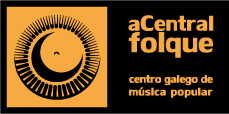Data
25/06/2023 _ 18:00 h
Brazilian ‘Nordeste’ : ‘Coco, maracatu, baião for rabeca de roda‘ with Pablo Lerner
 An opportunity to learn the unique adaptation of a genre with no hurdy-gurdy background developed by a foreigner to that music but with original results. The Argentinian Pablo Lerner will guide us to his personal path to take the tekerö and make popular music from the Northeast of Brasil taking the bow fiddle as reference to style and technique. Very interesting workshop for players of all levels and lovers of popular earthy music.
An opportunity to learn the unique adaptation of a genre with no hurdy-gurdy background developed by a foreigner to that music but with original results. The Argentinian Pablo Lerner will guide us to his personal path to take the tekerö and make popular music from the Northeast of Brasil taking the bow fiddle as reference to style and technique. Very interesting workshop for players of all levels and lovers of popular earthy music.
Northeastern Brazilian music, the well known ‘Música Nordestina’ of which forró, the most typical modern genre spread around the world, comes from the styles this masterclass is about.
The goal of this workshop is to approach the sound of the hurdy-gurdy to that of the rabeca (Brazilian fiddle). Although the HG is non-existent in Brasil, the strong medieval reminiscences of the northeastern modal melodies for the rabeca make them suitable for the HG.
The difference between both instruments is the drone string or pedal note (“bordão” in Portuguese), found only on the HG and absent in the rabeca. But Ana Maria Perazzo, about the rabeca in the folguedo (dramatic dance), says the fourth string of the rabeca, the lowest, is called the “burdão”. Rafael Borges Aloan speaks of the “constant presence of loose strings (pedal)”. And both authors call attention to double notes: “chords in general of two sounds, with intervals of thirds, sixths, sevenths, octaves and especially fifths”. Double notes whose function is not clearly harmonic: “The rabeca gives a harmonic climate to the pieces (basically two-tone chords and does not perform the chords in function of a tonality (as in traditional in traditional harmony), but in function of a certain sonority.” This sonority is reminiscent of the universe of drone music: neing the Northeast the most backward and rural region of Brazil, it treasures a considerable medieval universe, made of ballads on medieval themes, and linguistic and musical archaisms of Iberian origin, added to the crossbreeding with the aboriginal and black culture.
The technique to play HG with the sound of a “rabeca” is the technique of moving the crank forward and backward, like a bow, and not continuosly in a circle, as it is usual for the instrument. The come-and-go movement, however, is not the one used by European players. It is based on the movement of the “recsego” (the trompette or rhythmic string of the Hungarian tekerölant): the wrist makes a yo-yo movement that allows playing several notes in each direction and to change the velocity of the wheel. Perazzo da Nóbrega says: “The pressure exerted on the bow is not constant, and may vary depending mainly on the speed of the on the string, and can produce accents, one of the main characteristics of the style of the music in question. The speed of the bow on the string can produce alteration in the dynamics. If the pressure remains constant, an increase in velocity will also produce an increase in sound volume, and a decrease in velocity will consequently mean a decrease in sound volume”. The same applies to the HG wheel.
To learn this movement we will do in the workshop many exercises with long notes or two notes in the same direction, and also some exercises with melodic motifs
typical of different northeastern rhythms (coco, maracatu, baião) and also of other rhythms that are not northeastern. Finally, we will learn the best known northeastern tune: “Asa Branca”.
Registration
Fill in the form here
About the teacher
Born in Buenos Aires in 1973, Pablo Lerner studied tekerolant (Hungarian hurdy gurdy) with Balazs Nagy, at Obudai Nepzenei Iskola (Hungarian Folk Music School of Óbuda), in Hungary. He researched the universe of the rabeca (brazilian fiddle from the northeast of Brazil). As a result of that, he created a repertoire of northeastern music on the tekeró. He has performed in Hungary, Czech Republic, Croatia, Galiza, Portugal, Spain, Brasil and Argentina.










